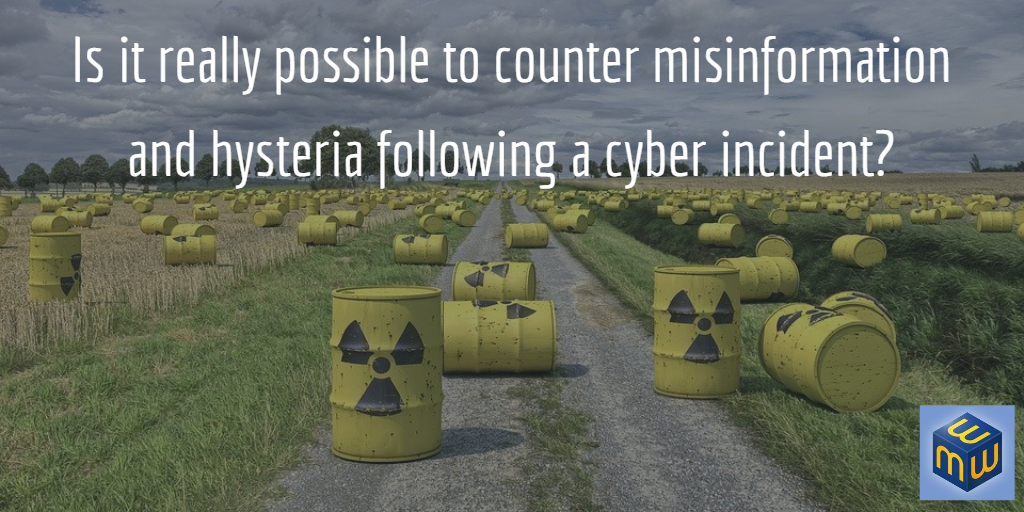Any crisis caries with it the treat of misinformation and hstyeria on social media and in the press, but cyber incidents are different in nature and thus far more prone to this particular threat.
This is because cyber incidents differ from normal crises in three important ways:
- You’re likely to be on the back foot: a cyber incident could well be public before you even become aware yourselves.
- Cyber incidents aren’t instantaneous: the average breach takes over 200 days (more than six months) to detect.
- You’re going to get the blame: The traditional crisis management tactics, like containment or using empathy to gain sympathy, simply won’t work with a cyber incident.
The approach required comes in four steps:
- Incident response: cyber incident experts find a fix to resolve the problem and conduct forensics to find the cause and ascertain the full scope
- Cyber law: a specialist legal team with cyber law expertise use the forensics to shape legally defensible narrative
- Reputation management: expert cyber comms practitioners to help you implement a crisis comms plan that incoporates the legally defensible narrative, and also support your team to help them deal with added complexity and enhanced comms workload
- Finally you act to prevent hysteria and counter misinformation
 The first three steps look fairly straight forward, but is it REALLY possible to counter misinformation and hysteria following a cyber incident?
The first three steps look fairly straight forward, but is it REALLY possible to counter misinformation and hysteria following a cyber incident?








